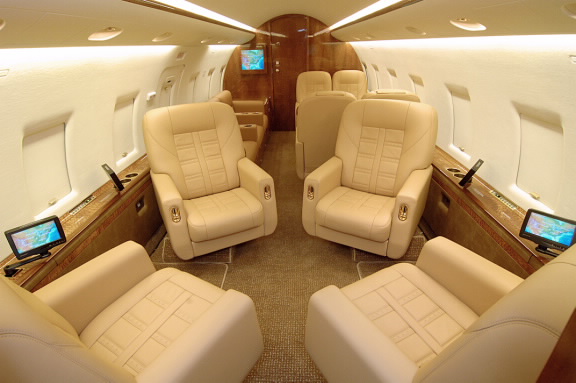Corporate aircraft should regularly be swept for listening devices. It is a misconception to think that just because they are up in the air that conversations would be safe from eavesdroppers. Recording devices, hidden microphones and video cameras, and even Wifi enabled devices could make their way into the passenger compartments where many confidential conversations may take place.
This article from The Register reflects on past concerns that the French government had bugged the passenger areas of their Concorde fleet. The precautions are even more significant these days.
Ed Wallace, director of incident response and advanced threats at security consultancy MWR Infosecurity, pointed towards forgotten reports that French spies routinely bugged first-class passengers flying with Air France – including Concorde passengers – back in the 1990s.
The idea was that business people relaxing on a long trip, and perhaps enjoying a drink or two, might discuss all manner of commercially sensitive information, oblivious to the possibility of eavesdropping. The motive was economic espionage rather than national security or anti-terrorism.
In 1993, The Independent revealed the existence of a French intelligence document compiled by the Department of Economics, Science and Technology that provided commercial shopping list for agents, a guide to which industrial secrets France wanted to snaffle from her allies.

Spies are said to have bugged Air France’s Concorde fleet.
The shopping list
American and Canadian intelligence services got wind of the snooping and issued discreet warnings to companies advising them to assume that their executives were being bugged whenever they flew first-class with Air France. The airline has long denied that any of its employees were involved in the practice, but suspicions persist that the operation could have been carried out without the involvement of flight crew.
Intelligence agents could be tasked to plant bugs before periodically recovering recordings all without the involvement of flight crew.
Steve Armstrong, MD of Logically Secure Ltd and former lead of the RAF’s penetration and TEMPEST testing teams, told El Reg that Concorde (for example) might have been bugged with standard microphones of the time either within seats or built into an aircraft’s infrastructure.
“Units could be dropped in for ‘safety purposes’, noise cancellation or several other purposes with feeds fed to a multitrack recorder,” Armstrong told El Reg.
Armstrong – who previously worked in teams that swept British embassies for bugs – said that the scenario that French spies bugged Concorde was both “plausible and easy to implement”.
“Surveillance systems could be integrated with the wiring and infrastructure of the plane,” said Armstrong. “The recording could be fed to a black box, with a new box used every day. Flight crew would not need to be involved.”
Concorde was a joint Anglo-French project that ran between January 1976 until its retirement in November 2003.
[Read more at theregister.co.uk]
Your private avionics technicians will undoubtedly do a good job of insuring that your planes are safe for travel, but they are not trained to spot threats of information leakage. A professional TSCM team can work with your flight ops crew to make sure your executive’s trips are safe from eavesdropping as well. Let us know if you would like help protecting your corporate aircraft.

Conversations may take place in many areas that are vulnerable to eavesdropping. A professional TSCM inspection will check areas that were untouched by the flight crew or technicians.
